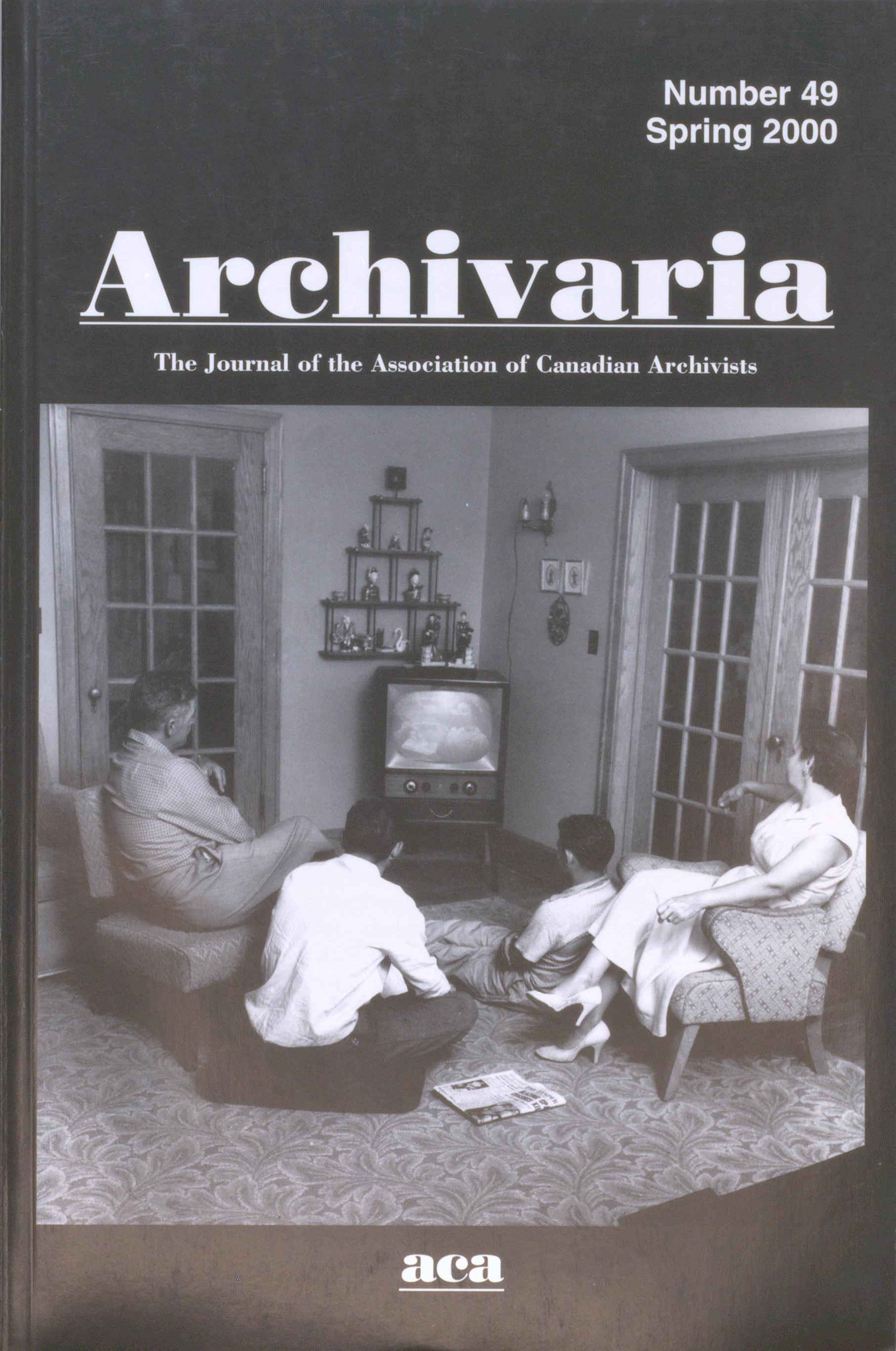Access Denied: The <i>Access to Information Act</i> and its Effect on Public Records Creators
Abstract
This article examines how Canadian federal bureaucratic organizationshave reacted to the introduction and implementation of the Access to Information Act of 1983. It uses organizational theory models, specifically those developed by Richard Laughlin, to demonstrate that government departments and agencies have responded to the promulgation of the act in a recognizable pattern that fits contemporary organizational theory’s understanding of how change affects institutions. The article suggests that federal departments have successfully attempted to mitigate the disturbance posed by increased pressures for openness by delaying the processing of requests, transferring agencies out from under the control of the legislation, undertaking changes to documentary form and content, and, in some instances, through the malicious disregard for the tenets of the legislation itself. The article concludes by discussing the significant impact of external forces on the creation and content of public documents and how such disturbances to the record-keeping environment translate into actions which have the potential to dramatically affect Canada’s documentary heritage.
RÉSUMÉ
Cet article examine comment les organisations bureaucratiques fédérales canadiennes ont réagi lors de l’apparition et de la mise en oeuvre de la Loi sur l’Accèsà l’information en 1983. Prenant pour base des modèles théoriques d’organisation, spécifiquement ceux développés par Richard Laughlin, il démontre que les agences etles organismes gouvernementaux ont répondu à la proclamation de la Loi selon un modèle connu et qui colle aux théories contemporaines des organisations quant à lamanière dont les institutions sont affectées par le changement. L’article suggère que les organismes fédéraux ont tenté et réussi à minimiser les perturbations entraînées par les pressions d’une plus grande ouverture en retardant le traitement des demandes, en fai-sant exclure des institutions de l’application de la loi, en modifiant forme et contenudes documents et, dans certains cas, en démontrant un manque de respect malicieuxenvers les principes mêmes de la loi. L’article conclut sur une discussion de l’impactimportant de forces externes sur la création ainsi que sur le contenu des documents publics et comment ces perturbations subies par l’univers de la gestion des documentsse traduisent dans des comportements susceptibles d’affecter dramatiquement l’héritage documentaire du Canada.
Authors of manuscripts accepted for publication retain copyright in their work. They are required to sign the Agreement on Authors' Rights and Responsibilities that permits Archivaria to publish and disseminate the work in print and electronically. In the same agreement, authors are required to confirm that "the material submitted for publication in Archivaria, both in its paper and electronic versions, including reproductions of other works (e.g. photographs, maps, etc.) does not infringe upon any existing copyright." Authors of manuscripts accepted for publication retain copyright in their work and are able to publish their articles in institutional repositories or elsewhere as long as the piece is posted after its original appearance on archivaria.ca. Any reproduction within one year following the date of this agreement requires the permission of the General Editor.





